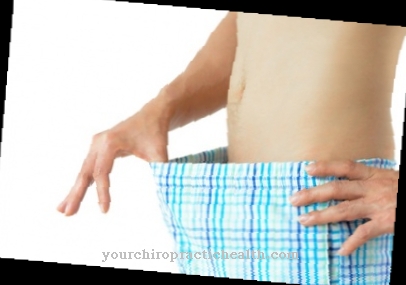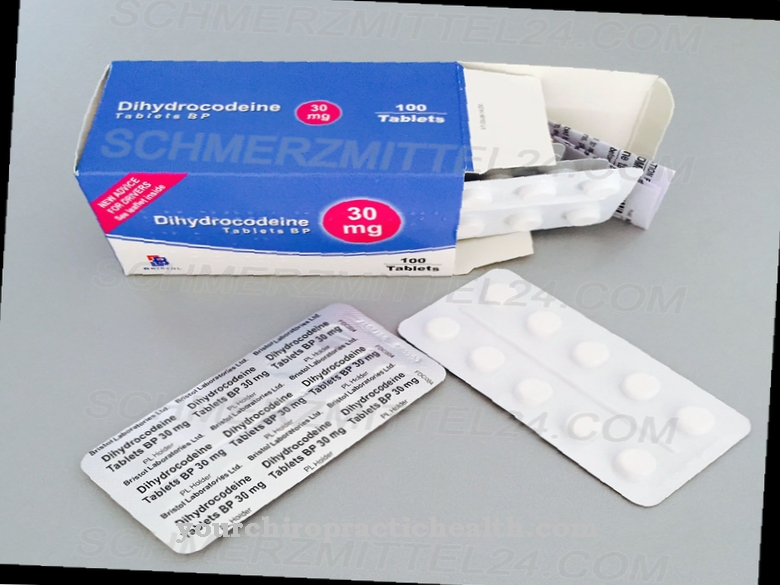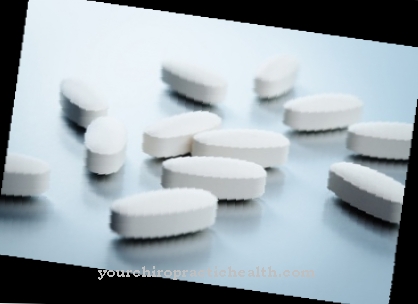The active substance Oxybutynin belongs to the anticholinergics. It is structurally related to the alkaloid atropine.
What is Oxybutynin?

Oxybutynin belongs to the group of anticholinergics and parasympatholytics. The remedy is used to treat a strong urge to urinate or bedwetting at night. The smooth bladder muscles are relaxed and the urge to urinate is reduced, so that the patient no longer has to empty his bladder as often.
Oxybutynin has been used in Europe since the late 1980s. In addition to tablets, transdermal patches have also been available since 2007. In the USA, dosage forms are also offered that are not approved in Europe. These are gels that the patient applies to the skin, which causes the active ingredient to enter the bloodstream.
Structurally, oxybutynin is a racemate that is related to atropine. The tertiary amine occurs in medicinal products as oxybutynin hydrochloride or oxybutynin. Oxybutynin hydrochloride is a crystalline, whitish powder that can be easily dissolved in water.
Pharmacological effect
Oxybutynin belongs to the group of active substances called antispasmodics, which have an antispasmodic effect. The remedy is able to act on both muscles and nerves. The body's own neurotransmitter acetylcholine is displaced by its receptors, which are located on the parasympathetic nervous system. The parasympathetic nervous system belongs to the main nerves of the autonomic nervous system.
By inhibiting the muscarinic M-acetylcholine receptors, the smooth bladder muscles are relaxed. This effect causes the excessive tension in the bladder muscles to subside. This gives the urinary bladder more capacity. As a result, the patient feels less urge to urinate and less often suffers from uncontrolled leakage of urine. Furthermore, the oxybutynin inhibits the secretion of sweat glands.
Medical application & use
Oxybutynin is mainly used against various forms of urinary incontinence. The affected people suffer primarily from excessive tension in the urinary bladder muscle, which is usually noticeable during the night. In addition, it can lead to the involuntary leakage of urine.
Other areas of application of oxybutynin are bedwetting at night (enuresis nocturna), a spastic neurogenic urinary bladder, hypersensitivity to the bladder wall muscles due to neurogenic disorders, and an unstable bladder in women.
There are also areas of application for oxybutynin that have not yet been fully approved. The anticholinergic is also administered as an off-label for hyperhidrosis (excessive sweating). However, this area of application is not approved in all European countries.
In most cases, oxybutynin is taken in the form of tablets. The recommended dose in the initial stage is three times half a tablet a day. In the further course of treatment, the daily dose is half a tablet to one tablet. Later on, the lowest dosage is recommended. If necessary, the dose can be increased to four times one tablet a day. Oxybutynin can also be used by children over the age of five. The recommended daily dose is half a tablet twice.
You can find your medication here
➔ Medicines for bladder and urinary tract healthRisks & side effects
In some patients, the use of oxybutynin has undesirable side effects. However, these do not show up in everyone. In most cases, the affected people suffer from constipation, dry mouth, accelerated heart rate, heat build-up, cardiac arrhythmias, rapid heartbeat, extensive swelling of the skin and mucous membranes, facial swelling, tiredness, dizziness, urinary retention, rashes, impotence, nausea, vomiting and loss of appetite .
Furthermore, blurred vision, sensitivity to light, dilation of the pupils, decreased tear flow, discomfort when urinating, headaches and allergic skin reactions are possible. In rare cases, nighttime anxiety disorders or confusion also appear.
With long-term use of oxybutynin, there is a risk of gum disease, tooth decay or a yeast infection in the mouth.
The administration of oxybutynin does not make sense if the patient is hypersensitive to the drug. Further contraindications are urinary outflow disorders due to a narrowing of the urethra or a benign enlargement of the prostate (prostate gland), the urge to urinate and urination at night due to weak kidneys or heart muscle weakness, gastrointestinal diseases, an intestinal obstruction (ileus) or ulcers of the large intestine.
The use of Oxybutynin during pregnancy and breastfeeding is not recommended. The drug is not suitable for children under five years of age.
Some interactions with other drugs should also be considered. The effect of oxybutynin increases when other anticholinergics or anti-Parkinson drugs such as amantadine are taken at the same time. The same applies to atropine, neuroleptics such as butyrophenones or phenothiazines, quinidine, H1 antihistamines and tricyclic antidepressants.
The effect of oxybutynin can be prolonged through the use of antifungal agents such as itraconazole or ketoconazole and macrolide antibiotics such as erythromycin.



























